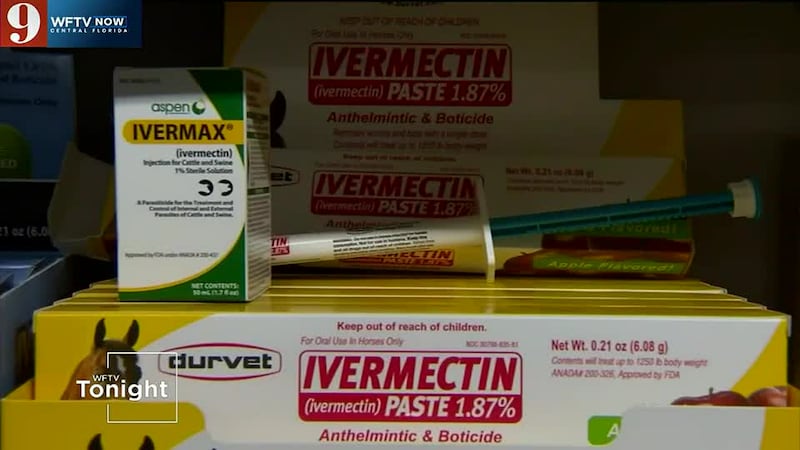Data from Poison Control shows how many people have called in to report cases of ivermectin poisoning, and it’s a spike the agency has never seen before.
Palmer Feed Store sells animals, farm products, pet supplies and hardware.
Along the back wall is medication that, for the most part, customers “hardly ever asked for it until a month ago,” said Nathan Allen with Palmer Feed Store.
READ: Where the Ivermectin craze came from, and why doctors say it doesn’t work
That ivermectin is an antiparasitic drug to deworm pets and livestock.
“We normally sell a case a year,” Allen said. “I sold that case in a week. I said I should probably buy two cases, so I did. And those completely sold out within a week.”
Allen knew something strange was happening, so he asked a customer if he knew the medicine was for his horse.
“He said, ‘I don’t have a horse,’” Allen said.
READ: 9 things to know about ivermectin
Despite lacking serious scientific support, people want ivermectin, believing it can protect them from COVID-19.
There is a human-grade form that is approved by the Food and Drug Administration to specifically rid people of worms and lice that needs to be prescribed by a doctor. So instead, people have settled on the one for livestock.
Central Florida emergency medicine physician Dr. Rajiv Bahl said he has taken care of two people who have taken the ivermectin for animals. They experienced nausea, vomiting and a bit of dizziness.
READ: AdventHealth announces transition to “Red Status” as admissions slow
“People are just kind of taking a swig or two of what they think is the right form,” Bahl said. “They’re just kind of haphazardly guessing.”
Florida Poison Control said the state agency saw a total of 39 ivermectin poison cases in August alone.
Before, they’d see five or fewer a month. A couple of the calls one expert has answered were related to the livestock formulation taken by people who were “unvaccinated and they were taken as preventative.”
©2021 Cox Media Group









